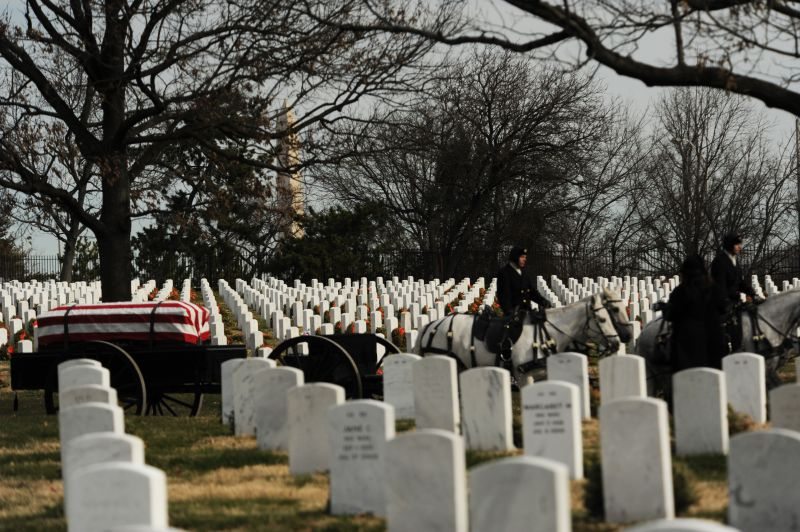Family members, friends and fellow service members gathered Jan. 20 here to honor the life and contributions of an original Tuskegee Airmen.
Retired Lt. Col. Luke Weathers, 90, a member of the 302nd Fighter Squadron during World War II, received full military honors including an F-16 Fighting Falcon flyover by 113th Wing, an Air National Guard unit of Washington, D.C. The ceremony coincided with the release of “Red Tails,” a full-length feature film chronicling the challenges and victories of the Tuskegee Airmen.
“The Tuskegee Airmen were dedicated heroes who gave so much for this country,” said Brig. Gen. Jeffrey Johnson, the 113th WG commander. “It is an honor to perform a flyover for this brave American.”
With World War II veterans like the Tuskegee Airmen entering their 90s, the numbers of these living history makers are dwindling.
During a time of racial segregation in America, the Tuskegee Airmen, the U.S. Army Air Corps’ first black fliers, proved they were just as qualified as their white counterparts to fly in combat.
“Along with serving their country, they changed America,” said retired Chief Master Sgt. John Patterson, the national 1st vice president of Tuskegee Airmen Inc. “They made it easier for me, when I came along many years later, to come into the military and have opportunities. ”
Weathers, a P-51 Mustang and P-39 Airacobra pilot, shot down two German planes in November 1944 and was awarded the Distinguished Flying Cross for his actions. Later, in 2007, he and 300 original Tuskegee Airmen were presented with the Congressional Gold Medal. It is one of the highest awards in the United States.
“He was a part of the Tuskegee experience,” Patterson said of Weathers. “He went to the combat zone in World War II when there were no examples for blacks to look up to. These gentlemen set the bar high and gave society someone to look up to.”
Along with his legacy, Weathers leaves behind his children, grandchildren, great-grandchildren, a host of family members and friends, and his wife, Jacqueline Moore-Weathers.
Moore-Weathers said her husband continued to encourage Airmen to reap all the benefits the military has to offer and fulfill their goals.
“He was very proud of being a part of the (Tuskegee Airmen),” she said. “He was very proud of the accomplishments they were able to make. After the war, he went about his life trying to create and participate in Tuskegee Airmen activities.”











